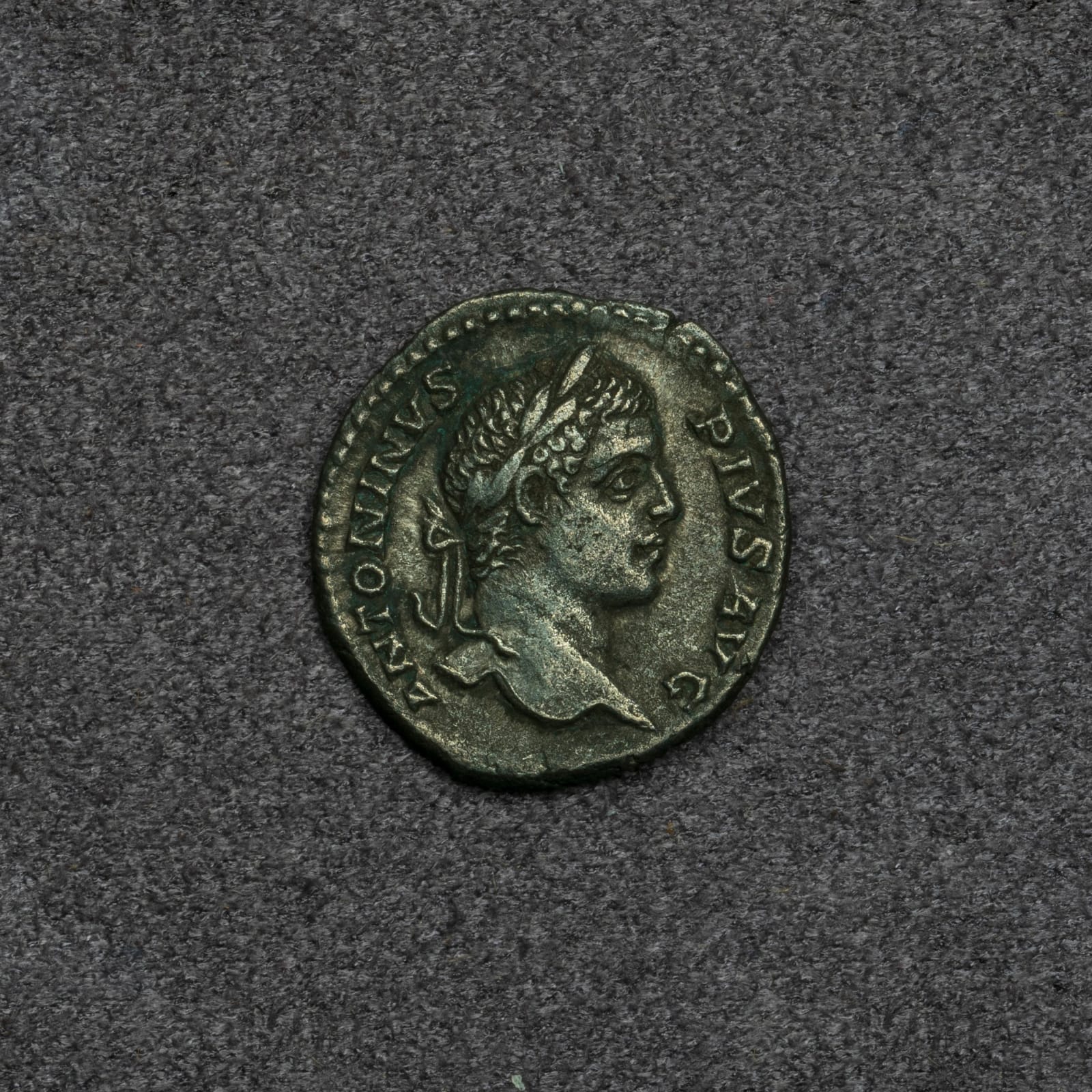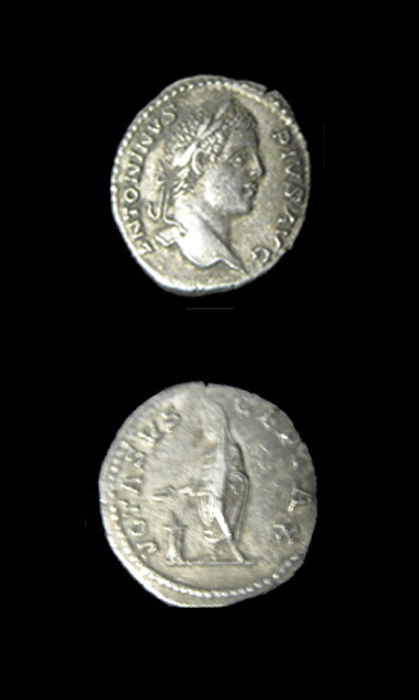Silver Denarius of Emperor Caracalla, 203 CE - 222 CE
Silver
3.2 Grams
LC.132
Further images
Obverse | Lateral portrait of Emperor Caracalla wearing a laurel wreath Inscription | ANTONINVS PIVS AVG Reverse | Emperor Caracalla with the Veil and Sacrificial tripod altar Inscription | VOTA...
Obverse | Lateral portrait of Emperor Caracalla wearing a laurel wreath
Inscription | ANTONINVS PIVS AVG
Reverse | Emperor Caracalla with the Veil and Sacrificial tripod altar
Inscription | VOTA SVSCEPTA X
Emperor Caracalla, the 21st ruler of the Roman Empire and the second monarch of the Severan dynasty, is notorious for his brutal tyranny during his reign from 198-217 CE. He is known for his savage acts, including the murder of his family members and political opponents. However, despite his notoriety, he is also recognized for implementing successful military and monetary policies, making him a complex historical figure. The son of his predecessor Septimius Severus and Empress Julia Domna, Caracalla was given the name Lucius Septimius Bassianus at birth, but was commonly referred to as ""Caracalla,"" derived from his preferred Gallic military attire. His oppressive rule, marked by the massacre of his own brother Geta and his followers, earned him a reputation as barbaric and cruel, leading to his assassination. However, Caracalla also achieved some successes during his reign, such as the Antonine Edict, which granted Roman citizenship to all individuals, and a monetary reform. He was also popular with the military and often accompanied soldiers on the battlefield, establishing himself as a warrior emperor. In addition, the Baths of Caracalla, built during his reign, stand as a testament to the artistic talent and wealth of the Roman Empire. Minted during the reign of Emperor Caracalla, this coin features a side portrait of the Roman ruler wearing a laurel wreath on the obverse and bearing the inscription "ANTONINVS PIVS AVGustus" as part of his imperial title. On the reverse side, Emperor Caracalla is depicted as a veiled high priest standing in front of a sacrificial tripod altar, with the inscription "VOTA SVSCEPTA X" representing his ten-year pledge.
Inscription | ANTONINVS PIVS AVG
Reverse | Emperor Caracalla with the Veil and Sacrificial tripod altar
Inscription | VOTA SVSCEPTA X
Emperor Caracalla, the 21st ruler of the Roman Empire and the second monarch of the Severan dynasty, is notorious for his brutal tyranny during his reign from 198-217 CE. He is known for his savage acts, including the murder of his family members and political opponents. However, despite his notoriety, he is also recognized for implementing successful military and monetary policies, making him a complex historical figure. The son of his predecessor Septimius Severus and Empress Julia Domna, Caracalla was given the name Lucius Septimius Bassianus at birth, but was commonly referred to as ""Caracalla,"" derived from his preferred Gallic military attire. His oppressive rule, marked by the massacre of his own brother Geta and his followers, earned him a reputation as barbaric and cruel, leading to his assassination. However, Caracalla also achieved some successes during his reign, such as the Antonine Edict, which granted Roman citizenship to all individuals, and a monetary reform. He was also popular with the military and often accompanied soldiers on the battlefield, establishing himself as a warrior emperor. In addition, the Baths of Caracalla, built during his reign, stand as a testament to the artistic talent and wealth of the Roman Empire. Minted during the reign of Emperor Caracalla, this coin features a side portrait of the Roman ruler wearing a laurel wreath on the obverse and bearing the inscription "ANTONINVS PIVS AVGustus" as part of his imperial title. On the reverse side, Emperor Caracalla is depicted as a veiled high priest standing in front of a sacrificial tripod altar, with the inscription "VOTA SVSCEPTA X" representing his ten-year pledge.





